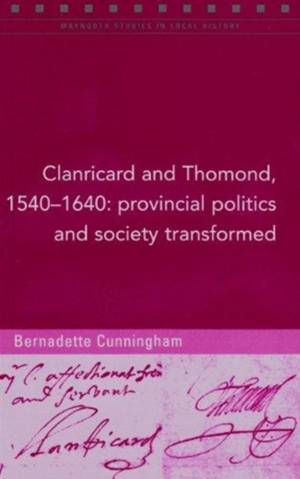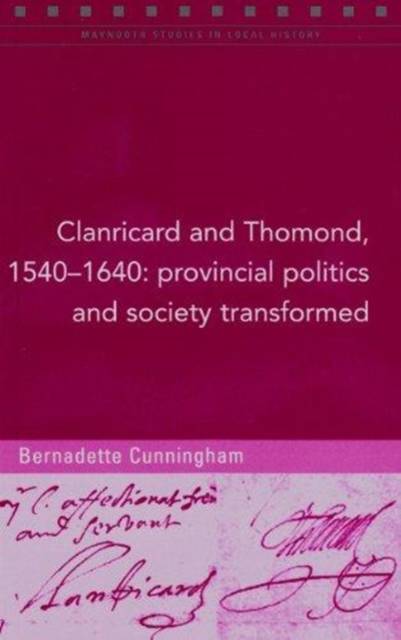
- Afhalen na 1 uur in een winkel met voorraad
- Gratis thuislevering in België vanaf € 30
- Ruim aanbod met 7 miljoen producten
- Afhalen na 1 uur in een winkel met voorraad
- Gratis thuislevering in België vanaf € 30
- Ruim aanbod met 7 miljoen producten
Zoeken
€ 13,95
+ 27 punten
Omschrijving
This short book compares and contrasts key developments in Ireland's two neighboring lordships in counties Galway and Clare, investigating how and why the impact of central government policy was ultimately dictated by local circumstances. As royal authority expanded in early modern Connacht, English common law replaced Gaelic custom and local lordships were transformed into landed estates on the English model. The willingness of the Burkes of Clanricard and the O'Briens of Thomond to condone a process of anglicization, under the auspices of a provincial presidency, allowed them to stabilize their authority within a new political structure. By the early 17th century, the earls of Clanricard and Thomond were working to consolidate their English-style landed estates in changed political circumstances. When government-sponsored plantation threatened in the 1620s, the active, if self-interested, participation by the earls in the debate over land titles in the province further enhanced their power, both locally and in the broader political sphere. By comparing the processes of political and social change in the two lordships, this study illustrates the centrality of local political considerations in determining the direction of societal change in early modern Connacht. (Series: Maynooth Studies in Local History - Number 100)
Specificaties
Betrokkenen
- Auteur(s):
- Uitgeverij:
Inhoud
- Aantal bladzijden:
- 72
- Taal:
- Engels
- Reeks:
- Reeksnummer:
- nr. 100
Eigenschappen
- Productcode (EAN):
- 9781846823527
- Verschijningsdatum:
- 13/09/2012
- Uitvoering:
- Paperback
- Formaat:
- Trade paperback (VS)
- Afmetingen:
- 140 mm x 216 mm
- Gewicht:
- 90 g

Alleen bij Standaard Boekhandel
+ 27 punten op je klantenkaart van Standaard Boekhandel
Beoordelingen
We publiceren alleen reviews die voldoen aan de voorwaarden voor reviews. Bekijk onze voorwaarden voor reviews.







